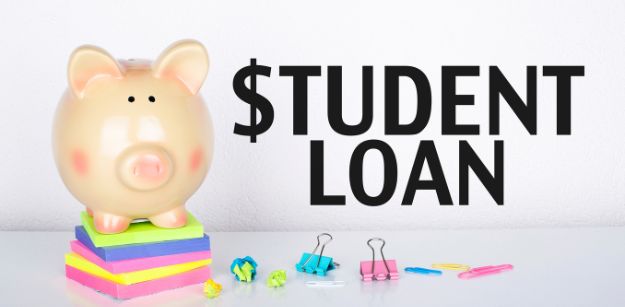In essence, the cost of borrowing money is the interest on any loan. The student loan interest rate is the amount computed as a percentage of the principal, or the sum you borrowed. You should always anticipate paying back more than the initial amount of your student loan due to interest.


When does student loan interest begin to accrue? Student loans do not start accruing interest as soon as they are taken out, in contrast to personal loans. The precise time when your loans start accruing interest may vary since there are several different types of student loans.
What are the Factors Affecting Student Loan Interest Rates?
Your unique credit history and financial profile often have the most impact on the interest rates on your student loans. Fortunately, as a borrower, you have the most personal influence over that element influencing interest rates. Lenders will be more driven to acquire your business as your credit score and track record get better, and to do so they may offer you cheaper, more enticing rates and conditions.
Of course, if your finances go out of control and you have difficulties making timely payments to your creditors, your credit history might also work against you. It is crucial that you take action to improve your credit score, make and save as much money as you can, and make timely payments on all of your bills and loan commitments. If you follow those steps, your credit should gradually improve.
1. Industry Shifts
All consumer loan rates are determined by underlying interest rates that are established by the government or by market forces like supply and demand. Through a “trickle-down effect,” the price that lenders charge to customers would normally decrease in tandem if, for example, the Federal Reserve Bank lowers the rates it charges to lend funds to financial institutions. Consumer rates typically ultimately increase if the Fed hikes rates.
2. Refinancing
In order to pay off the debt or loans that you presently owe, you can refinance your student loans by taking out a brand-new loan. You can bargain for a cheaper interest rate overall because this new loan has different terms, alternatives, and an interest rate than your prior loan had.
Getting a reduced interest rate on your student loans is the ultimate objective of student loan refinancing. You could spend less overall if there is a reduced interest rate, which will enable you to pay off your student loan sooner.
3. Discounted Interest Rates
On occasion, lenders will also provide loans with lower interest rates; in their advertising, they may use terms like “reduced basis points.” These are essentially marketing incentives provided to borrowers in the form of exceptionally low, alluring rates on student loans or student loan consolidation and refinancing.
Why would a lender offer a consumer that type of benefit? These rewards are typically provided to borrowers who consent to have their monthly payments deducted automatically from their bank accounts each month. As long as you have adequate cash in your bank account, this guarantees that the loan will be paid on time.
How to Reduce the Student Loan Interest You Pay?
● Apply for scholarships and grants before you borrow
Applying for grants and scholarships is one of the finest things you can do. Scholarships and grants are free funds that you don’t have to repay, in contrast to student loans that you must pay back. Additionally, you may apply for and be awarded several grants and scholarships, which can lower the amount of student loan debt you need to take out.
● Try to boost your income to pay your loans down faster once you borrow
In addition to scholarships, starting a high-paying side business while college can significantly lessen your dependency on student loans. And if you’ve already received your degree, you may research additional hustle options that you can pursue in addition to your regular job.
You may really get ahead on debt payments if you direct all of the additional money toward them. The impact of these additional payments is demonstrated by our extra payment calculator.
● Refinance your student loans once you’re stable
Refinancing your student loans is an excellent way to lower your interest rates after you graduate. You can obtain a new loan with entirely different repayment conditions when you refinance your existing debt. You could be eligible for a loan with a lower APR, a shorter amortization period, or even a cheaper monthly payment.
There are several drawbacks to refinancing that should be considered. For instance, you won’t be able to participate in IDR schemes or receive loan forgiveness if you refinance federal loans. Additionally, you won’t have access to borrower safeguards including the option to postpone loan payments.
Summary of student loan interest
The basics of student loans are rather simple: you get a loan from a lender for a set sum of money to help you pay for education. You must pay back the loan after you graduate and start working. However, just like other loans, student loan interest is on top of the principal.



